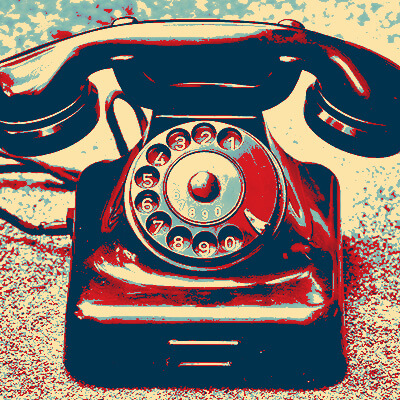The trainers are so friendly, and helpful. They certainly have lots of patience and knowledge. They make you feel so comfortable asking questions you would not dare ask your family to show you again how to do. They are always welcome in my home, sometimes I hate to see them go!
Need Help? Call Us.
877.201.3586
4 Tips to Avoid Stimulus Payment Scams

Have you gotten a stimulus payment yet? Due to the state of the world's economies, many leaders are brainstorming ways to help lessen the impact. In the United States, leaders have agreed to pay most citizens $1,200. Of course, there are caveats.
If you’re a taxpaying citizen over the age of 18, and not claimed by parents as a dependent, chances are that you’ll receive a $1,200 check. If you’re under 18 or claimed as a dependent, the person claiming you will receive $500 for each dependent.
In most cases, the IRS will have your banking information on file. Rather than a paper check being mailed to your last known address, that lump sum will be directly deposited into your bank account. However, you might not have received your money yet, even though family and friends already have. What can you do? The IRS suggests that you go to this site that will let you know if you’re eligible, and the current status of your payment. And if the IRS doesn’t have your direct deposit information on file, you can give it to them on the site. That way, you know your payment won’t be delayed by waiting for a paper check to go through the mail.
through GroovyTek’s over-the-phone membership.
However, everyone is trying to locate where their money is. And since millions of people have lost their jobs and are desperate for anything that will help pay for groceries or rent, everyone is scrambling. Some scammers are preying on that desperation. Conflicting information has confused many people, and some people will fall for scams that could leave them worse off than they would have been without the money.
There are lots of tiny tricks that could help you spot a potential scam. If you’re paying attention and being vigilant, it’s easier to make sure that your banking information is safe.
There are four main tips, though, that will help you spot any scams that come your way.
-
On the official wording of any site you’re visiting, make sure that the phrase ‘stimulus check’ or ‘stimulus payment’ isn’t used. Those are common terms used by media outlets and in common vernacular. The official wording being used by the IRS and the Treasury Department is an economic impact payment.
-
You may be asked to sign over that $1,200 lump sum in exchange for getting more money. Even though it sounds like it will help you in the long run, you’ll be left with none of the original money. And you certainly won’t be getting anything extra from a scammer!
-
Anyone asking to verify your information is suspect. You can input your information on the official IRS site to verify you are a taxpayer. But anyone directly requesting information verification such as phone, email, text, or social media requests to verify your financial or personal information is a scammer.
-
Another popular scam involves receiving a check, but you aren’t able to cash it. Instead, you’re told to call a number listed on the check or verify your information online before they will allow you to cash it. As a rule of thumb, the best way to avoid scams is to avoid giving out any type of personal or financial information in exchange for receiving your economic impact payment.
Using these tips can help you receive your money as soon as possible, without dealing with nightmare scam situations. If you're worried about whether something is a scam or not, give us a call! Our trainers can help you spot scams in an over the phone session to help keep your financial information safe.
Client Reviews
My tech from GoovyTek has been terrific. He is patient, knowledgeable, and explains things really well. I enjoyed learning new tools and features on my smart phone and computer. They have made doing things a lot easier and more enjoyable.
Jennifer H
GroovyTek has helped me, a 65 year old, learn how to do all sorts of things on my computer that I did not know about before. I had no one else to ask, and they have rescued me. It's so great to have a polite, friendly, knowledgeable person come to my house and teach me. What a wonderful service!
Margie C
Outstanding trainers with expertise and a lot of patience at a fair price. I have used them for two years and they have given me a much better understanding of the in's and outs of how to use many aspects of my computer. It is a pleasure to have them come to my home and work on my own computer problems.
Jerry P
Very pleased with the experience. Knowledgeable trainer who was most helpful. Highly recommend the service.
Michael M
I was so pleased to find GroovyTek. Although I am pretty tech savvy in some areas there are others where I need help. GroovyTek has helped me fill in that gap of information. I made an appointment to help me sync my devices and also help me learn how to organize my photos. The trainer was knowledgeable and able to explain things very clearly.
Natalie W
My tech is patiently bringing me (at age 79) into the computer age. I am so glad that I found him through GroovyTek. What a wonderful gift!
Judy K
I was just delighted and on my way to practice new found skills. My trainer was on time, friendly, knowledgeable, and very patient with this little old lady (age 78). I didn't have to take notes to remember - he recorded it on his tablet and sent me a copy to download so I have my instructions, step by step. So pleased with the service and the follow-up.
Karen M
I have always had the best computers that Apple offered, but the problem was that I never knew how to use them. Thanks to my GroovyTek trainer, my tech skills have increased exponentially and I am feeling more competent and confident with each lesson.
John B
A wonderful service in every aspect from calling in to set up an appointment with GroovyTek and follow ups as well as the fabulous help, patience and expertise of the tech who came to the house to work with me with my computer issues. I would highly recommend GrooveyTek for all your computer needs! Thanks so much!
Jean G
I'm very pleased with my session today with GroovyTek. My trainer was able to fix both my computer and my printer (problems with both) and instructed me on how to correct the issues if they occurred in the future. We also made plans for my next session. I find GroovyTek sessions extremely helpful and convenient since they are in my home.
Eva S
I had a session with GroovyTek over the phone today. It was extremely helpful to me because I was able to see everything that he was doing on my computer as he was talking. I was then able to follow his actions to do what he was doing as well. What a way to go!
Carole M
Very impressed with my trainer’s ability to provide thorough explanations and demonstrations. I have confidence now in knowing how to manage my photos, videos, and documents. I received my money’s worth of valuable instruction.
Cheryl M
I had a serious issue with my bank website not being secure. This was a very technical problem. I used the Remote Session option to get help. My GroovyTek trainer kept at it until we finally resolved the issue.
Jeff W
Spectacular people. Knowledgeable, professional, customer focused and easy to work with. I have used their services a couple of times (because I am over 40) and they are great to work with.









